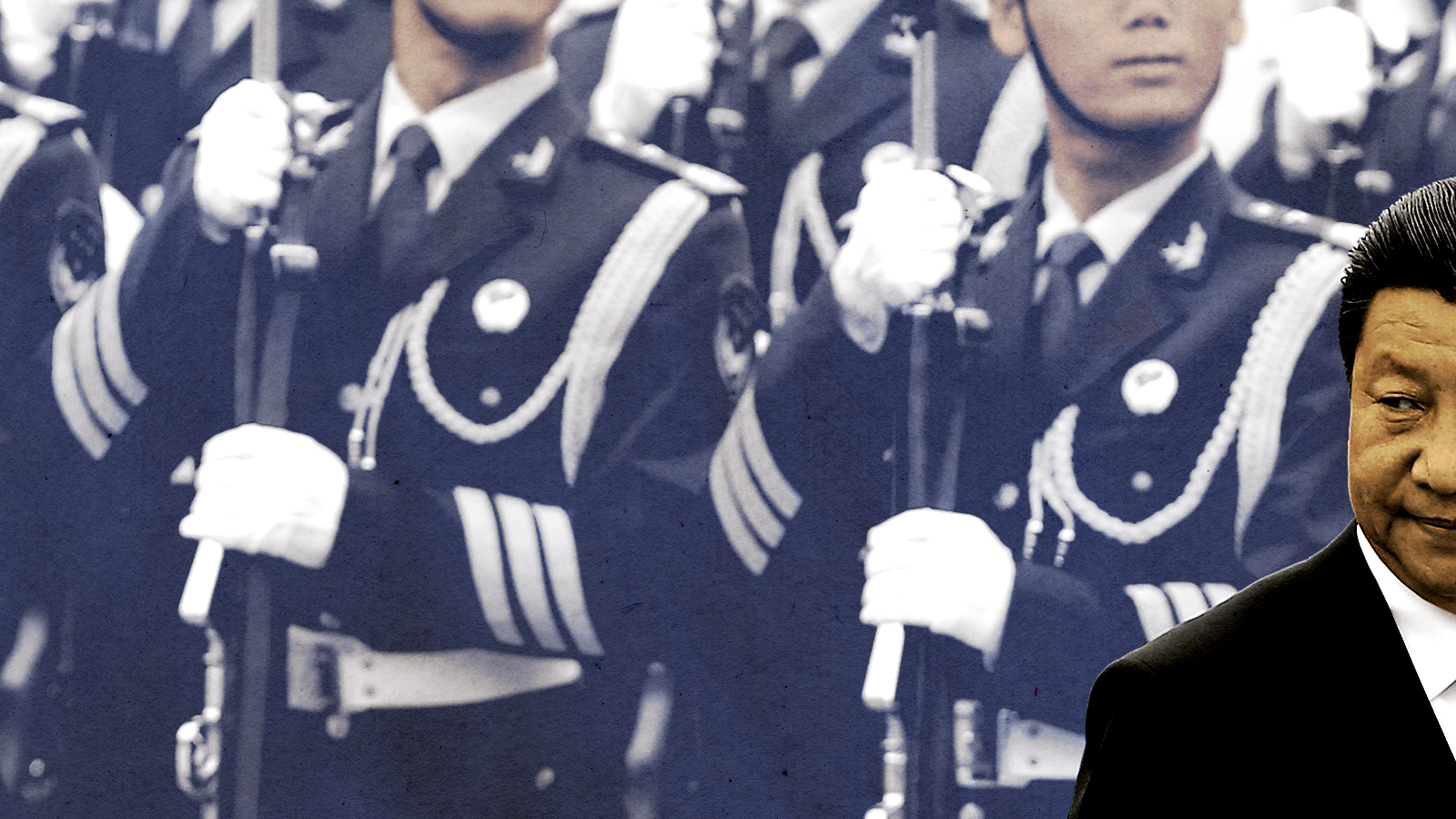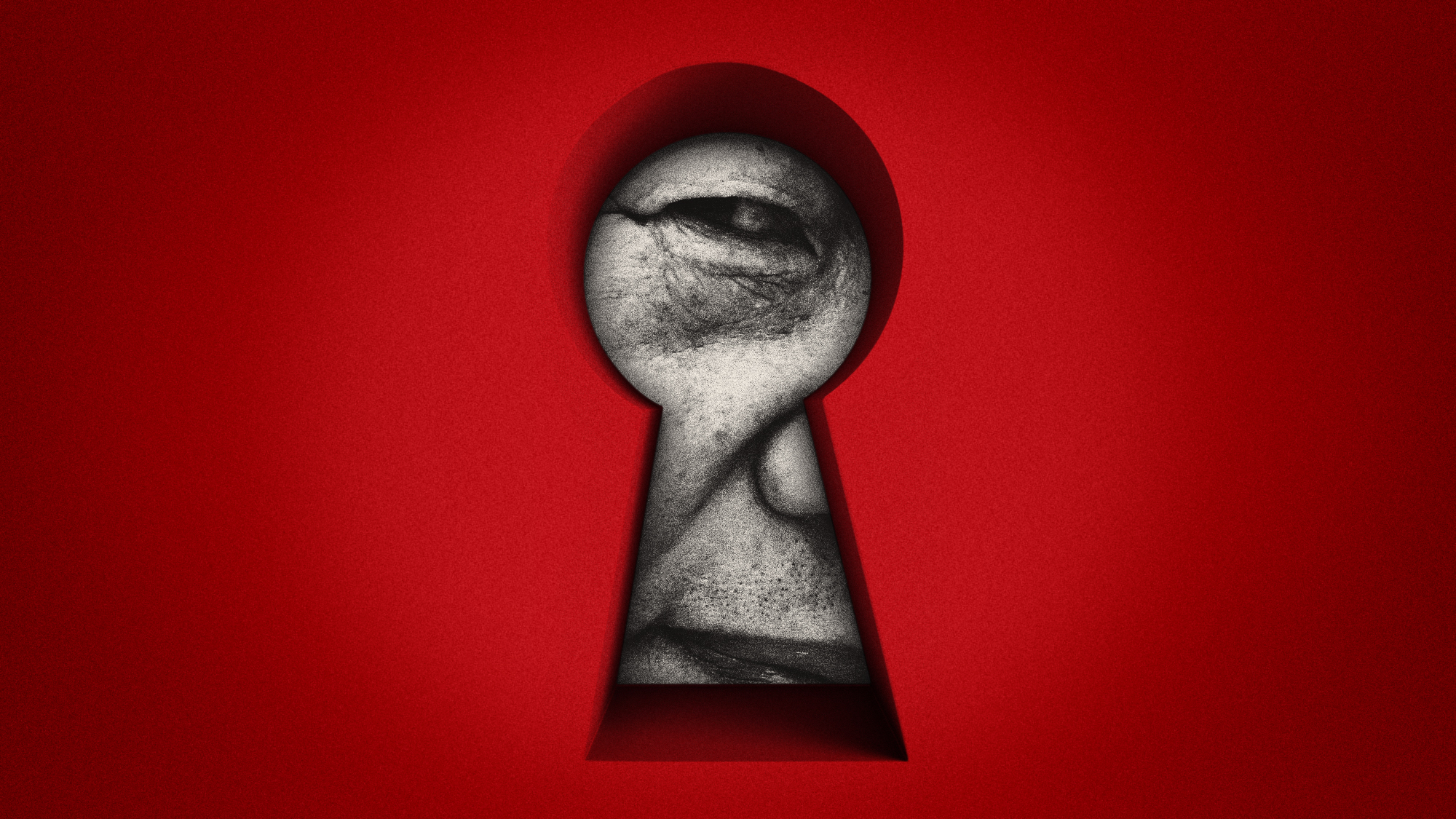We overestimated Russia's military. Is China our real rival?
Even our best intelligence often leaves us wanting


A free daily email with the biggest news stories of the day – and the best features from TheWeek.com
You are now subscribed
Your newsletter sign-up was successful
We in the United States have a terrible track record of judging our foes.
Yes, Mitt Romney was sort of right when he described Russia as "without question, our number one geopolitical foe," during a 2012 presidential debate with President Barack Obama. Obama, of course, replied with what at the time seemed like a mic-drop zinger: "The 1980s are now calling to ask for their foreign policy back, because the Cold War's been over for 20 years."
Now the war in Ukraine, the largest military conflict in Europe since World War II, even has some democrats conceding Romney was right.
The Week
Escape your echo chamber. Get the facts behind the news, plus analysis from multiple perspectives.

Sign up for The Week's Free Newsletters
From our morning news briefing to a weekly Good News Newsletter, get the best of The Week delivered directly to your inbox.
From our morning news briefing to a weekly Good News Newsletter, get the best of The Week delivered directly to your inbox.
But how right was Romney — now a Republican senator from Utah — really? And how wrong was Obama? Yes, Putin's Russia has been a terrible troublemaker in recent years, including its Syria intervention and its "sweeping and systematic" interference in the 2016 U.S. election, as described in the Mueller Report. Russia also spent big money attempting to upgrade its military might. Definite "geopolitical foe" behavior. That bit of Romney's characterization was dead-on correct, and Obama's snippy, hand-wavy response looks embarrassing in retrospect.
By the eve of Russia's invasion of Ukraine, plenty of foreign policy experts had joined Romney in making the "Russia is back!" case. Andrew Latham, a professor of international relations at Macalester College in St. Paul, Minnesota, wrote the following for The Hill last December: "Russia is not the geopolitical basket-case it was in the immediate post-Soviet era… Russia is unambiguously a 'great power' — a country possessing both substantial instruments of national power and the will to use these instruments to influence political outcomes around the world."
And when Putin launched his unprovoked attack on Ukraine, much of elite opinion confidently predicted that a quick Russian battlefield victory would provide final confirmation of the great power thesis. But a month in, Russia hardly looks like a great power possessing "substantial instruments of national power." Not only has its modernized military gotten bogged down, it looks to be slowly disintegrating. Russia's vaunted financial firepower isn't doing much better with a good chunk of some $600 billion in international currency reserves frozen by America, Canada, and Europe. The Russian economy may be imploding almost as fast as the Russian army.
What did the experts miss about this supposed great power? Well, as far as the military goes, intelligence gathering is always difficult, and it appears even Putin overestimated the capabilities of his "new look" military. Similarly, both Putin and Western experts underestimated the will of the West to impose economy-crippling sanctions — as well as the willingness of NATO nations to supply massive amounts of weaponry to Ukraine.
A free daily email with the biggest news stories of the day – and the best features from TheWeek.com
But this isn't the first time America has thought too highly of Russian capabilities. It's now believed that during the "missile gap" of the 1950s and 1960s, the U.S. drastically overestimated the number of Soviet nuclear-tipped missiles. And there's still controversy about the CIA overestimating the strength of the Soviet Cold War economy.
What's more certain is that it was only months before Russian leader Mikhail Gorbachev officially dissolved the Soviet Union in 1991 that the CIA's Soviet experts "told U.S. leaders explicitly that the Soviet Union was in a state of crisis, offered a poor prognosis, and spelled out specific scenarios in which the regime could implode," according to a 2008 analysis of the agency's performance in forecasting the end of the U.S.S.R.
So, perhaps not much has changed since Winston Churchill defined Russia as "a riddle, wrapped in a mystery, inside an enigma." Yet what the past month of conflict has seemingly proven, at minimum, is that while Russia is a geopolitical rival, it's a real stretch to describe it as a "great power" beyond its 6,000-warhead nuclear arsenal.
But if we've been so wrong and in so many ways about Russia, how do we judge China's potential threat? If Russia is a great power, how do you rank China, which has an economy and population 10 times that of Russia's? A "grand power," or something?
That said, I'm concerned we are making the same mistake with China as we have with Russia. Many American policymakers are wildly impressed with China's rapid economic rise, and if China can annually grow its economy at 4 percent or 5 percent indefinitely, as some experts forecast, that awe would be well-founded.
That forecast, along with China's decades of rapid growth, is why Washington wants to invest in its own version of China's state-directed industrial policy where government favors certain industries as strategic sectors. One example of that strategy is the domestic chipmaking sector. And while Democrats have typically been more willing than the GOP to intervene in the private sector, more Republicans are joining them, such as Senator Marco Rubio of Florida who now argues for an industrial policy "targeted to urgent national needs."
If China continues to grow at that 4 percent or 5 percent rate, as Australia's Lowy Institute points out, it would make China the world's undisputed economic and technological superpower by mid-century. Maybe the leading military, too. Welcome to the Chinese Century.
But Lowy offers good reason for skepticism (as do the China experts at the American Enterprise Institute where I work). It notes the weakening productivity capacity of the Chinese economy as it retreats from the economic openness and market orientation that once turbocharged growth.
One big example of that is President Xi Jinping's "common prosperity" push to tighten the state's grip over the private sector. If China only grows around 2 percent to 3 percent a year, then the country's future looks very different. From the Lowy report: "China would still likely become the world's largest economy. But it would never establish a meaningful lead over the United States and would remain far less prosperous and productive per person than America, even by mid-century."
Even so, China would hold the top position as America's premier geopolitical competitor, as it does today. Washington should plan accordingly. Compete but do not copy.
James Pethokoukis is the DeWitt Wallace Fellow at the American Enterprise Institute where he runs the AEIdeas blog. He has also written for The New York Times, National Review, Commentary, The Weekly Standard, and other places.
-
 Corruption: The spy sheikh and the president
Corruption: The spy sheikh and the presidentFeature Trump is at the center of another scandal
-
 Putin’s shadow war
Putin’s shadow warFeature The Kremlin is waging a campaign of sabotage and subversion against Ukraine’s allies in the West
-
 Media: Why did Bezos gut ‘The Washington Post’?
Media: Why did Bezos gut ‘The Washington Post’?Feature Possibilities include to curry favor with Trump or to try to end financial losses
-
 What is ‘Arctic Sentry’ and will it deter Russia and China?
What is ‘Arctic Sentry’ and will it deter Russia and China?Today’s Big Question Nato considers joint operation and intelligence sharing in Arctic region, in face of Trump’s threats to seize Greenland for ‘protection’
-
 Is the Chinese embassy a national security risk?
Is the Chinese embassy a national security risk?Today’s Big Question Keir Starmer set to approve London super-complex, despite objections from MPs and security experts
-
 What would a UK deployment to Ukraine look like?
What would a UK deployment to Ukraine look like?Today's Big Question Security agreement commits British and French forces in event of ceasefire
-
 Did Trump just end the US-Europe alliance?
Did Trump just end the US-Europe alliance?Today's Big Question New US national security policy drops ‘grenade’ on Europe and should serve as ‘the mother of all wake-up calls’
-
 Taiwan eyes Iron Dome-like defence against China
Taiwan eyes Iron Dome-like defence against ChinaUnder the Radar President announces historic increase in defence spending as Chinese aggression towards autonomous island escalates
-
 Is conscription the answer to Europe’s security woes?
Is conscription the answer to Europe’s security woes?Today's Big Question How best to boost troop numbers to deal with Russian threat is ‘prompting fierce and soul-searching debates’
-
 Trump peace deal: an offer Zelenskyy can’t refuse?
Trump peace deal: an offer Zelenskyy can’t refuse?Today’s Big Question ‘Unpalatable’ US plan may strengthen embattled Ukrainian president at home
-
 Vladimir Putin’s ‘nuclear tsunami’ missile
Vladimir Putin’s ‘nuclear tsunami’ missileThe Explainer Russian president has boasted that there is no way to intercept the new weapon
